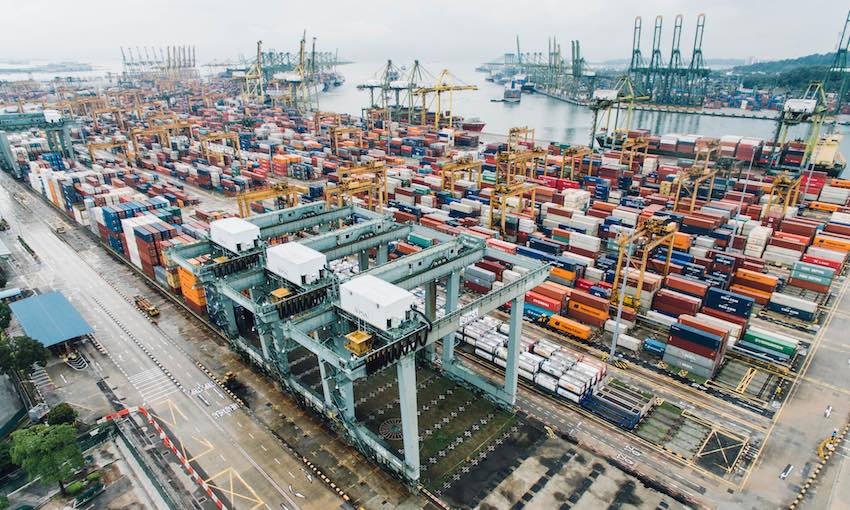THE BALTIC Exchange has named Singapore as the world’s top maritime centre for the tenth year in a row.
Singapore scored 95.32 out of a possible 100 points in the Xinhua-Baltic International Shipping Centre Development Index (ISCDI) Report, published by the maritime data provider and Chinese state news agency Xinhua.
The island nation was followed by London and Shanghai, which scored 83.35 points and 81.58 points, respectively.
The Baltic Exchange said Singapore had retained its position due to a “winning combination” of strategic location, international outlook and established ecosystem of professional global maritime services and good governance.
Baltic Exchange CEO Mark Jackson said there had been a growing amount of trade moving from west to east over the past decade.
“This shift in trade flows is clearly visible looking at the Xinhua-Baltic ISCDI top 10 rankings over the past decade,” he said.
“This report is a valuable reminder of how intrinsic the maritime industry is to global trade.
“The best performing maritime centres demonstrate there is more than one way to grow a successful hub – whether borne out of location, encouraged through attractive policies and conditions or creation of a large port cluster.
“In every instance, collaboration across the various industry players is central to a maritime centre’s growth and prosperity.”
Chee Hong Tat, Singapore’s acting minister for transport and senior minister of state for finance, said Singapore wass honoured to top the Xinhua-Baltic International Shipping Centre Development Index for the 10th consecutive year.
“This was made possible by the strong support of our tripartite partners from the industry and unions,” he said.
“We will continue to grow our maritime industry to create more good jobs for our people, and make Singapore the global maritime hub of choice.”
Teo Eng Dih, chief executive of the Maritime and Port Authority of Singapore, thanked international partners, industry, the research and enterprise community, as well as unions for the achievement.
“Together, our strong tripartite relationship has supported the development of Singapore as the preferred International Maritime Centre.
“We remain committed to fostering an environment that encourages enterprise, innovation, and talent development.
“We will continue our work with our partners to enhance Singapore’s connectivity, advance digitalisation efforts, and accelerate the decarbonisation of international shipping.”
Forty-three maritime locations were rated as part of the report, which considers port factors including cargo throughput, number of cranes, length of container berths and port draught; number of players in professional maritime support businesses such as shipbroking, ship management, ship financing, insurance and law, as well as hull underwriting premiums; and general business environment factors such as customs tariffs, extent of electronic government services and logistics performance.
The Baltic Exchange said there was little movement further down the top 10 list as Hong Kong, Dubai, Rotterdam and Hamburg took fourth, fifth, sixth and seventh place, respectively.
The trading capital of New York and its New Jersey port dropped by two places from eighth place last year, to 10th place this year while Athens/Piraeus moved up by one place.
A relative newcomer to the Index, Ningbo-Zhoushan, sits at number nine. Baltic Exchange said the Chinese city’s ranking amongst the top 10 is primarily due to it being the busiest port in the world in terms of cargo tonnage.

